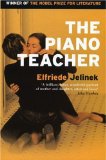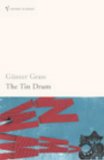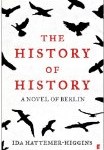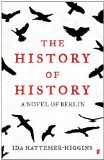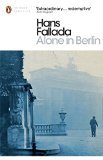 Translated from the German by Michael Hofmann
Translated from the German by Michael Hofmann
Five words from the blurb: ordinary, German, postcards, attacking, Hitler
Alone in Berlin begins in 1940 with a couple discovering that their only son has been killed fighting in France. Devastated by the news, the couple decide to drop postcards which attack Hitler across the city. This act of resistance is extremely dangerous and the couple risk their lives every time they step out of their apartment with a new piece of propaganda.
Alone in Berlin reads like a classic – the writing was simple, but had an effortless style:
It doesn’t matter if one man fights or ten thousand; if the one man sees he has no option but to fight, then he will fight, whether he has others on his side or not.
The pace was excellent in the beginning, but as the book progressed it began to flag a bit. I think this was mainly due to the inevitability of the conclusion (or possibly because this 600 page book was written in just 24 days and could have done with a bit more editing!)
The book did a fantastic job of showing what life was like for ordinary Germans living in Berlin. The difficulties and fear they faced were shown without sensationalism. Each character was well drawn and I loved the flawed nature of their personalities.
I want to criticise the book for its unlikely coincidences, but on reading the afterword I discovered that it is heavily based on fact. This makes the story more poignant, but also more frustrating. Warning, minor spoiler: Their tiny act of resistance put many people in danger, but failed to achieve anything. I prefer to read about people who make a real difference in the world and this couple just seemed to bumble around without having any real impact.
My only real criticism is that the book lacked atmosphere. There weren’t many descriptive passages and there was an emotional distance between the characters and the reader. Luckily I know enough about Berlin to be able to conjure up my own mental images of the city, but I’d prefer to have these reinforced by the text.
Overall this book has many positives, but seems to fall down the more you think about it. Recommended to those who’d like to know more about life in Berlin during WWII, but prefer gentler reads.

.
The thoughts of other bloggers:
… this book is beautiful, a quiet book of common decency...The Parrish Lantern
…the momentum of this novel, which is divided into four chunks, is lost in the big baggy structure of it. Reading Matters
…the novel brings to life superbly drawn characters… Euro Crime
I read this as part of German Literature Month – take a look for lots of great reading suggestions!


